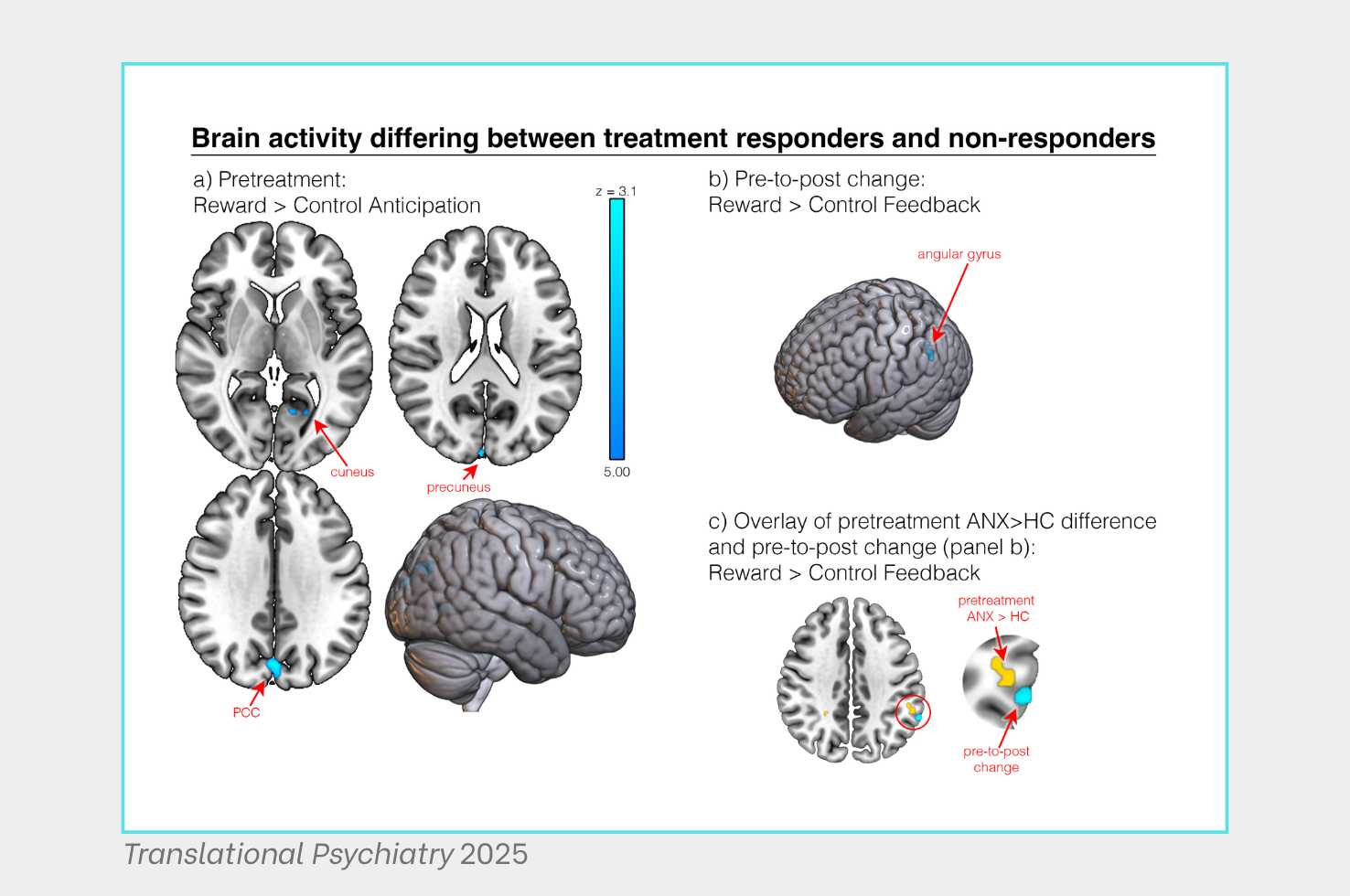Translational Psychiatry: The Role of Reward-Related Brain Activity in Response to Treatment and Later Depression Severity: Data from a Randomized Controlled Trial in Early Adolescents with Anxiety Disorders

Alterations in reward-related brain activity have been linked to response to psychological treatment in adolescents with anxiety disorders. However, it remains unknown whether these effects are driven by reward anticipation or feedback, which reflect different functional roles in motivated behavior, or to what extent brain activity changes as a function of treatment response and relates to future depression.
A team of scientists including Cecilia Westbrook, MD, PhD (postdoctoral scholar); Erika Forbes, PhD (Professor of Psychiatry, Pediatrics, and Psychology); Neal Ryan, MD (Joaquim Puig-Antich Professor in Child and Adolescent Psychiatry and Professor of Psychiatry and Clinical and Translational Science); and Cecile Ladouceur, PhD (Professor of Psychiatry and Psychology), analyzed data from a published randomized controlled trial of cognitive-behavioral therapy (CBT) for anxiety disorders in adolescents age 9–14. The team used functional magnetic resonance imaging (fMRI) during an approach-avoidance task to examine reward-related activity in young people with anxiety before and after 16 weeks of CBT or a comparison therapeutic technique, child-centered therapy (CCT).
Study results supported prior findings that youth with anxiety disorders showed significant differences in pre-treatment activity in reward-related brain regions (e.g., ventral striatum, caudate) during reward anticipation. However, the current study demonstrated hypo-activation, a deviation from hyper-activation seen in prior research. In addition, the investigators found that brain activity in another network—the default-mode network—during the reward task corresponded with treatment response and later risk for depression. The default-mode network is important for other types of thinking such as worry and self-relevant processing. Youth who responded to treatment showed decreases in default-mode network activity before and after therapy.
“Our work suggests that what adolescents’ brains are doing during reward processing, other than directly processing rewards, might interfere with treatment. This might represent excessive worry, or perhaps conceptualizing rewards in a more abstract or self-relevant way.” said Dr. Westbrook, first author of the study, which was published in Translational Psychiatry. Dr. Westbrook is a graduate of the Psychiatry Research Pathway for residents, and her research focuses on mechanisms contributing to development of depression and anxiety in adolescents.
“Much of the research in pediatric anxiety disorders has focused on neural substrates of threat responding. However, exposure therapy, a key component of CBT, implicates the reward circuitry as it involves learning to approach anxiety-provoking situations such as giving a presentation in front of the class. The current study addresses the critical need to deepen understanding of how alterations in this circuitry relate to treatment response during early adolescence—an ideal time in development to harness the potential of brain plasticity and improve outcomes long term.” said Dr. Ladouceur, senior author of the study.
The role of reward-related brain activity in response to treatment and later depression severity: data from a randomized controlled trial in early adolescents with anxiety disorders
Westbrook CA, Schlund M, Silk JS, Forbes EE, Ryan ND, Dahl RE, McMakin DL, Kendall PC, Mannarino A, Ladouceur CD
Translational Psychiatry 15, 286 (2025). https://doi.org/10.1038/s41398-025-03388-2
